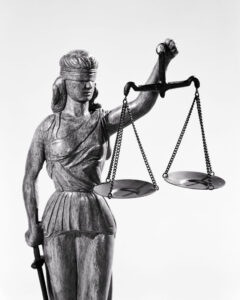Miranda Warning: What Is It?
When arresting someone, police have to inform them of their rights before any interrogation.
By: Sarah Cowgill | January 9, 2020 | 431 Words

(Photo by Joe Raedle/Getty Images)
“You have the right to remain silent. Anything you say can, and will, be used against you in a court of law. You have the right to an attorney. If you cannot afford one, one will be appointed to you.” These are words we often hear on television shows and in movies.
The day that the most well-known phrase in American law and order became official was July 13, 1966, when the United States Supreme Court handed down its decision in the case of Miranda v. Arizona. The landmark decision established that all criminal suspects must be advised of their constitutional rights before interrogation.
Miranda v. Arizona
Ernesto Arturo Miranda was arrested by police in Phoenix, Arizona, during March 1963, for an assault. After two hours of police interrogation Miranda hand wrote and signed a confession at the bottom of a pre-typed statement. He wrote: “I do hereby swear that I make this statement voluntarily and of my own free will, with no threats, coercion, or promises of immunity, and with full knowledge of my legal rights, understanding any statement I make may be used against me.”
The court appointed Miranda a public defender – paid $100 – and went to trial. Miranda was convicted and sentenced to 20-30 years in prison. Although his attorney argued at trial that during the arrest Miranda was not made aware of his rights to remain silent and to have legal counsel present during questioning, the confession stood.

(Photo by H. Armstrong Roberts/ClassicStock/Getty Images)
Miranda then requested the Supreme Court to review his case in June 1965. Ultimately, the court ruled that both Miranda’s Fifth and Sixth Amendment rights were violated when he was arrested.
The Fifth Amendment of the United States Constitution was written in September 1789 and ratified by three-quarters of the states in 1791. It guarantees due process and that the state and the country must respect residents’ legal rights.
The Sixth Amendment, also on the books since 1791, guarantees the rights of criminal defendants to have a lawyer among other assurances.
Miranda’s conviction was overturned.
Blind Justice
The Founding Fathers of this nation wanted a fair and just judicial system – for all Americans, even and perhaps especially for suspected criminals. This is why you see the blindfolded statue of Justice in many courtrooms – it is to remind us not to treat friends in a different manner from strangers, nor to assume that rich people deserve better representation than the poor. Justice for all is a founding principle of this nation and the Miranda decision was meant to further that vision.
















